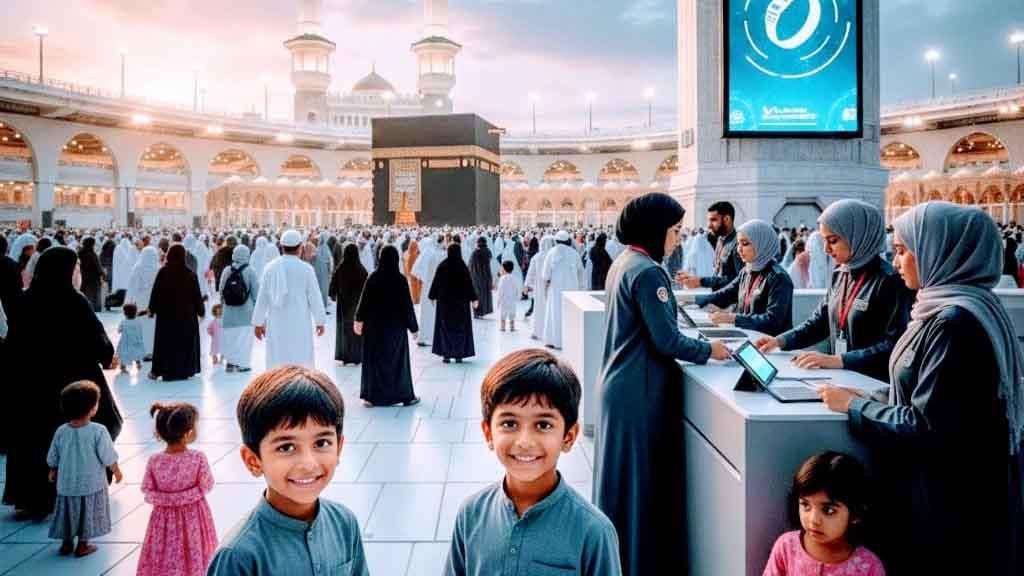In a remarkable reflection of the evolving spiritual landscape of the United Kingdom, a growing number of former pubs and churches are finding new purpose as vibrant mosques, serving the expanding Muslim community. This transformation highlights the increasing presence and integration of Islam in British society, offering spaces for worship, community cohesion, and spiritual reflection.
While precise figures on the conversion of pubs and churches to mosques are not centrally compiled, anecdotal evidence and local reports indicate a discernible trend. Dilapidated or underutilized buildings are being revitalized, offering practical solutions to accommodate the growing Muslim population in various towns and cities. These conversions often breathe new life into structures that might otherwise fall into disrepair, providing a focal point for local Muslim communities.
Daily Dazzling Dawn Analysis: Why Pubs and Churches are Becoming Mosques
Several factors contribute to this phenomenon,Demographic Shifts: The Muslim population in the UK has significantly increased over the past few decades, primarily due to immigration and higher birth rates within the community. The 2021 Census recorded nearly 4 million Muslims, representing 6% of the total UK population, a substantial rise from 2.7 million (4.9%) in 2011. This growth necessitates more spaces for worship and community activities.
Availability and Affordability: Former pubs and churches, particularly those that have closed due to declining patronage or structural issues, can sometimes be more readily available and potentially more affordable than purpose-built properties. Their existing structures can be adapted to serve the needs of a mosque.
Community Need: As Muslim communities expand, the need for accessible local mosques increases. Converting existing buildings can provide a quicker solution to this need compared to lengthy planning and construction processes for new buildings.
Regeneration: In some cases, these conversions can contribute to the regeneration of local areas by bringing a previously vacant building back into active use and fostering community engagement.
The Growing Embrace of Islam in the UK-The increasing visibility of mosques is one aspect of the broader growth of Islam in the UK. Several factors contribute to this:
Immigration: The arrival of Muslims from various parts of the world, particularly from Bangladesh, India, Pakistan actually South Asia in the mid-20th century and later from other regions due to conflict or seeking refuge, has significantly shaped the UK's religious demographics.
Higher Birth Rates: Compared to other religious groups in the UK, the Muslim population tends to have a younger age profile and higher birth rates, contributing to its overall growth.
Conversions: While official data on conversions to Islam is limited, anecdotal evidence suggests that individuals from diverse backgrounds are embracing Islam for personal and spiritual reasons.
Interfaith Engagement: Increased interaction and understanding between different faith communities can sometimes lead individuals to explore and embrace Islam.
Finding Inner Peace: The Appeal of Islam-Many individuals find profound inner peace through Islam. This is often attributed to various aspects of the faith:
Connection with the Divine: The central tenet of Islam is the belief in one God (Allah) and the establishment of a direct relationship with Him through prayer (Salah), remembrance (Dhikr), and reading the Quran. This connection can provide solace, guidance, and a sense of purpose.
Community and Belonging: Mosques serve as community hubs, fostering a sense of belonging and mutual support among Muslims. This strong social fabric can be a source of comfort and strength.
Clear Moral and Ethical Framework: Islam provides a comprehensive ethical and moral framework that guides all aspects of life. This clarity can offer stability and a sense of direction, reducing anxiety and uncertainty.
Spiritual Practices: Practices like prayer, fasting during Ramadan, and charity (Zakat) are seen as ways to purify the soul, develop discipline, and connect with the wider community, fostering inner peace and contentment.
Emphasis on Gratitude and Acceptance: Islamic teachings emphasize the importance of gratitude (Shukr) for blessings and acceptance (Sabr) during trials. These principles can cultivate a more positive and peaceful outlook on life.
Information and Statistics on Islam and Mosques in the UK (2025)-Muslim Population: As of the 2021 Census, there were approximately 4 million Muslims in the UK, representing 6% of the total population. Estimates for 2024 suggest this figure may have risen to around 5.86%.
Growth Rate: The Muslim population in the UK experienced a significant growth of 43.5% between 2011 and 2021. The 0-18 Muslim population in England is around 11.2%, indicating a continued growth trajectory. In major urban centers like Birmingham and Greater Manchester, the proportion of the under-18 population with a Muslim background is even higher (43.5% and 35% respectively).
Geographical Distribution: The largest Muslim populations are concentrated in Greater London (15%), the West Midlands (9.6%), the North West (7.6%), and Yorkshire and the Humber (8.1%).
Number of Mosques: There are an estimated 1,500 mosques across Britain. A significant proportion of these are in converted buildings rather than purpose-built structures. Data from 2025 indicates at least 1,876 actual masjids (purpose-built or established mosques) in the UK, with additional prayer spaces in hired halls, dedicated rooms, and other institutions.
The transformation of former pubs and churches into mosques symbolizes the dynamic and evolving nature of British society, where Islam is increasingly becoming an integral part of the cultural and spiritual landscape. These mosques serve not only as places of worship but also as vital centers for community engagement, social support, and the cultivation of peace and understanding.
British social scientists offer diverse perspectives on British Muslims and the spread of Islam, often emphasizing the complexity and nuance of both. Here are some key themes and illustrative quotes (though finding specific, widely attributed quotes directly addressing "the spread of Islam" with attribution to a specific social scientist is challenging, research themes point in these directions):
On the Diversity and Integration of British Muslims:
Emphasis on Heterogeneity: Social scientists consistently highlight that British Muslims are not a monolithic group. Their research underscores the vast differences in ethnicity, cultural practices, levels of religious observance, and socio-economic backgrounds.
As Sophie Gilliat-Ray notes in her book "Muslims in Britain," it is still "meaningful to consider Muslims in Britain as constituting a distinctive social group, on the basis of a generally shared set of core religious beliefs" (though acknowledging internal diversity).
Complexities of Integration and Belonging: Research explores how British Muslims navigate their identities and their sense of belonging in the UK, often in the face of Islamophobia and societal pressures.
Tariq Modood, a prominent sociologist, has extensively written on multiculturalism and the challenges and possibilities of Muslim integration, emphasizing the need for "civic pluralism" where Muslims can be both British and Muslim without contradiction. He argues for a move beyond assimilationist models.Research has also highlighted the "exilic narratives" that some British Muslims experience, as described in studies exploring how stereotyping and misrepresentation can hinder a full sense of belonging, even for those born in the UK.
On the Spread of Islam:
Demographic Factors as Primary Drivers: Social scientists generally agree that the growth of the Muslim population in the UK is primarily due to higher birth rates within the community and immigration patterns.
Conversions as a Contributing Factor: While not the main driver of growth, the phenomenon of conversion to Islam is acknowledged and studied. Research explores the diverse motivations and experiences of converts.
Limited Focus on Overt "Spreading": While da'wah (inviting others to Islam) exists, social science research in the UK tends to focus more on the demographic and social factors contributing to the Muslim population's growth rather than aggressive proselytization campaigns being the primary driver.
Challenges and Perspectives:
Social scientists consistently analyze the impact of Islamophobia on British Muslims and how negative stereotypes can shape public perception and hinder integration.Studies have documented the prevalence of anti-Muslim prejudice in media, political discourse, and everyday life.Securitization and the "Muslim Question": The "War on Terror" and subsequent security measures have led to increased scrutiny of Muslim communities, a phenomenon analyzed by social scientists who examine its impact on civil liberties and social cohesion.








.svg)



